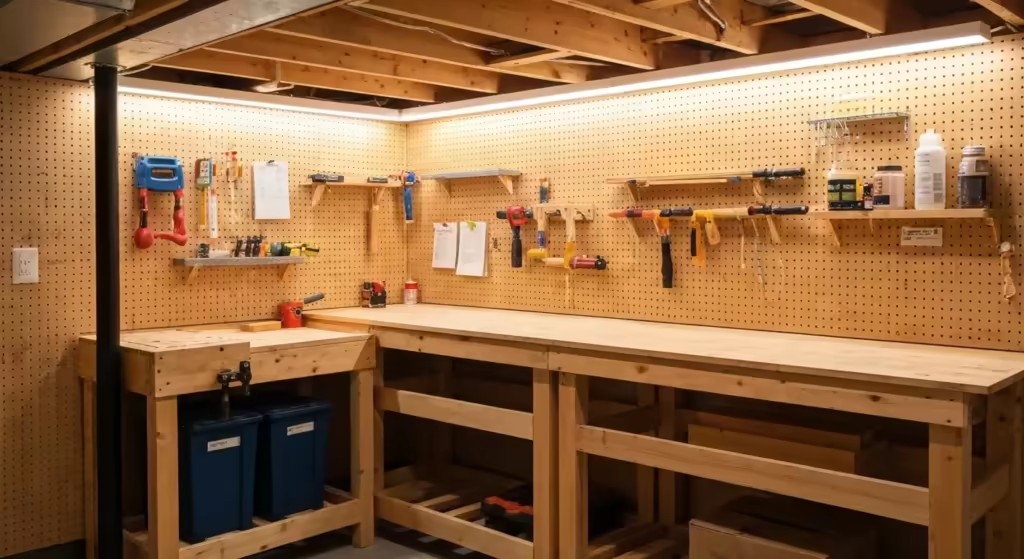For all the road warriors out there, and for those who just dream of becoming one: Is it better to stay away from RVs or not? This is a question that gnaws at the heart of many adventurers. For some, the American dream is simple and stationary: own a house with a cute picket fence, a yard for the dog, and roots planted deep in a community. For others, it’s honestly equally straightforward, but in a different way: a house on wheels. This vision is fueled by glossy Instagram feeds showing perfect sunsets from a desert campsite and the promise of ultimate freedom. It appeals to a wide range of people, from retirees looking to see the country they worked in for decades, to digital nomads trading a cubicle for a mobile office, and even young families hoping to give their kids a taste of adventure beyond the backyard.
Whether we’re talking about a massive, bus-like motorhome or a towable fifth wheel, some Americans dream of a “home” that can take them wherever they want, whenever they want, and vacation on the cheap. The allure is undeniable—waking up to a new view every week, following the good weather, and having all your own stuff with you. However, before you trade in your keys for a life of perpetual motion, it’s critical to understand that RVs are a huge investment, not just of money, but of time and energy. This is especially true if you’re looking for one with all the comforts of a traditional home, because bridging that gap comes with a hefty price tag and a steep learning curve.

Buying an RV can be no less than a minefield
Only a few people look forward to the high-pressure environment of setting foot on a car dealer’s lot, and when it comes to RVs, it isn’t any different; in fact, it can be significantly more complex and stressful. Buyers might as well brace for diverse frustrations, from rampant upselling of questionable warranty packages and protective coatings, to scare tactics about limited availability. You’ll also encounter frustrating pricing games and, quite often, salespeople being quite ignorant about the technical specifics of what they’re really selling. They might know the floorplan, but ask them about the electrical system’s inverter or the axle weight ratings, and you may be met with a blank stare.
Because of this, it is absolutely essential that you arm yourself with knowledge. Make sure you study really well before you even think about going to a dealership. Research different brands, floorplans, and construction types online. Understand the common points of failure for the models you’re interested in. Never be afraid to ask plenty of questions and test every single part of the RV during the pre-delivery inspection (PDI). Don’t be rushed. Turn on every appliance, run the water, check the seals, operate the slide-outs multiple times, and look for any signs of water damage. You know, just to make sure it will really fit your future purposes and you aren’t buying someone else’s problem.
RVs can be insanely expensive
Are you planning to go quite big and live in the lap of luxury on the road? Well, a new class A motorhome, the kind that looks like a tour bus, starts at around $100,000 to $400,000, but one with all the bells and whistles like residential-sized appliances, multiple bathrooms, and sophisticated electronics might easily push a million bucks. And that’s not even the ceiling. One of the most expensive, the EleMMent Palazzo, comes in at a surprising $3 million, a price tag that could buy a fleet of luxury cars.
Of course, smaller motorhomes won’t even get close to seven figures, but still could represent a major financial outlay, ranging from $40,000 for a basic Class B van to over $100,000 for a well-equipped Class C model. Travel trailers, pop-up campers, and even fifth wheels are definitely more economical, as they start around $8,000 for a very basic model, sometimes even topping out around $50,000 for a mid-range family-friendly unit. Don’t forget to factor in sales tax, registration fees, and the initial cost of outfitting your new rig with essentials like sewer hoses, water filters, leveling blocks, and kitchen supplies, which can add thousands to the initial cost.
Do you know what might help soften the financial blow? Joining an RV membership club. It can save you plenty of money on camping fees, which can range from $20 to over $100 per night. These clubs also often provide discounts on necessary RV accessories and even gas. You can check out the Good Sam Club for a wide range of RV discounts and valuable roadside assistance, or look into programs like Passport America for deep discounts on nightly campground rates, especially during the off-season.
RVs depreciate really fast
Just like any other vehicle, an RV is a depreciating asset, but the rate at which it loses value can be shocking. Simply driving the RV off the lot might cause a huge loss in value, often cited as around 21%, to be more specific. That means a $100,000 motorhome could be worth less than $80,000 by the time you take it on its first trip. No matter what the size, in more typical cases, as soon as your RV is 5 years old, it will have lost from 36% to 38% of its original value. When it’s 10 years old, you should count yourself lucky if you get half of what you paid. This rapid depreciation, driven by wear and tear from travel and constant updates in new models, often makes buying a gently used RV the best financial move, letting the first owner absorb that initial massive hit.
RVs are basically gas guzzlers
Well, no one ever accused RVs of being fuel-efficient, and for good reason. They are heavy, shaped like bricks, and designed for comfort, not aerodynamics. In fact, the biggest motorhomes, Class A, will get only 7 to 13 mpg, according to the Camping & RVing British Columbia Coalition, and that’s often an optimistic figure, especially if you’re driving through mountains or against a headwind. Downsizing to a Class B or Class C could really point to anywhere from 14 to 25 mpg, but obviously, a lower number is a better bet for realistic budgeting. Towing a large travel trailer with a truck will often yield similar, or even worse, results.
The financial impact of this poor fuel economy is substantial. At 10 mpg, with gas at $3.00 per gallon, the short 500-mile round trip to a weekend getaway can really cost $150 or more in gas alone. That 2,500-mile cross-country dream trip you’ve been thinking about? You should expect to spend over $775, and that’s a conservative estimate. If gas prices spike or you’re driving a rig that only gets 7 mpg, that fuel bill can easily double, turning a “cheap” vacation into a very expensive one.
RVs can be quite terrifying to drive
RVs are not just big cars; they are fundamentally different beasts on the road. They should be driven by confident drivers who truly understand that larger vehicles need special skills and constant attention behind the wheel. For example, you might need to learn how to efficiently park using only your mirrors instead of simply being able to judge distance and potential obstacles over your shoulders. This also applies to changing lanes on the highway, where your blind spots are enormous.
There are many other challenges to master. You should also practice driving downhill without stomping constantly on the brakes, which can cause them to overheat and fail. This means learning to use your engine’s transmission to slow the vehicle. You have to be acutely aware of your vehicle’s height to avoid disastrous encounters with low bridges or tree branches. And whatever you do, always remember that an RV cannot, and will not, stop on a dime! It requires a much longer following distance and a proactive, defensive driving style at all times.
You can’t really escape housework, even if you’re in an RV
The fantasy of RVing often involves leaving your worries and chores behind. The reality is that in an RV, chores vacation with you. Since there is rarely a dishwasher, you have to wash the dishes by hand after every meal. There’s also the good old sweeping and vacuuming that needs to be prioritised, often daily, especially since floors and upholstery get dirty quite fast when people tromp in and out all day long from the campsite, tracking in dirt, sand, or mud.
Beyond the typical cleaning, there are RV-specific tasks that are far from glamorous. The most infamous is dumping the black and gray water tanks, a necessary and often unpleasant job. There’s also laundry, which often involves hunting down a laundromat in a strange town or even doing the tiniest of loads in a small, and often inefficient, portable washer. Not to mention, there’s a lot of cleaning and prep to be done before and after every single trip, from stocking supplies to flushing tanks and checking tire pressures.
RVs aren’t really meant for urban exploration
Well, compact cars aren’t marketed so heavily to city dwellers for nothing. Navigating a large vehicle through congested city streets is a recipe for stress. Space, especially parking, is a premium one, so good luck finding a spot for your 40-foot behemoth! Even if you find a large enough parking lot, many have restrictions against oversized vehicles. Motorhome USA even goes as far as to recommend ditching the RV for a city sojourn, leaving it at a shopping mall or other location with plenty of parking (with permission!) and using public transportation or a ride-sharing service from there.
This logistical challenge often leads RVers to tow a smaller vehicle, affectionately known as a “toad” or “dinghy.” While this solves the problem of local transportation, it introduces its own set of complexities and costs, including the tow bar system, an auxiliary braking system for the car, and the added difficulty of maneuvering the entire setup. Some cities are more accommodating, and Campanda has some great suggestions for cities that are a bit friendlier to RVs, such as Las Vegas and Orlando, which are built to handle large numbers of tourists and their vehicles.
You can’t just park an RV anywhere for the night
One of the biggest misconceptions about RVing is that you can just pull over on any scenic road and camp for free. Naturally, if you really want to have the proper hookups for electricity, fresh water, and sewer, you will have to find and pay for a spot in an RV park or campground. Penny-pinchers and adventurous souls could wonder if they can just pull over and try to “rough it” to save some dough. This practice, known as boondocking or dry camping, is possible, but it has rules. If you don’t make sure it’s kosher ahead of time by checking local regulations, you might get a rude awakening from law enforcement and be hit with steep fines for not respecting laws and regulations against overnight camping.
Even Walmart, which is famously welcoming to RVs, might not permit overnight parking, as the final decision depends on local city ordinances and the store manager’s discretion. Always call ahead to confirm. However, there are resources to help. Certain road trip apps and websites, such as iOverlander, Campendium, and Walmart Overnight Parking, can definitely help you find camper-friendly lots, designated public lands, or businesses like Cabela’s and Cracker Barrel that may allow overnight stays. Successful boondocking also requires being self-sufficient with power (solar or generator) and water, which adds another layer of planning.

It’s quite hard not to feel cramped at times
Even in a huge RV with multiple slide-out rooms that dramatically increase the living area, you won’t have too much space compared to a traditional home. Models generally top out around 400 square feet; anything more, and they might be legally classified as manufactured homes, which have different regulations. On a rainy day with the whole family stuck inside, that 400 square feet can feel like 40. It’s enough to say that sometimes sharing one small bathroom and a tiny kitchen doesn’t even cut it. The feeling that there’s zero privacy can really go beyond the confines of the RV itself and extend to the campground, where there are other travelers living, talking, and running their generators only feet away from your window.
You will have yet another insurance bill to prepare for
Just like your car and home, your RV needs to be insured. To stay fully street-legal, you need to pony up for insurance, and the costs can be significant. The bigger and more expensive the RV, the bigger the bill. You could be looking at maybe even $2,000 a year or more for Class A motorhomes, as Trusted Choice shared. Naturally, many other factors could affect the final rate. This includes whether you will actually be tooling around on the occasional weekend or living in it full-time. A full-timer’s policy is more comprehensive and more expensive because it functions like a hybrid of auto and homeowner’s insurance.
Other key factors that influence your premium are your driving history, your chosen deductible, and any extras you add. These extras are often crucial, such as coverage for personal belongings inside the RV, vacation liability for any accidents that happen at your campsite, and robust roadside assistance specifically designed for the challenges of a large vehicle, ensuring you can get a tow if you break down in the middle of nowhere.
Upkeep is quite expensive, too
Just like other homes and cars, RVs are quite pricey to maintain, and the costs don’t stop after you’ve paid for insurance and gas. Mobile Home Parts Store has already surveyed plenty of RV experts and found they spent an average of $1,410 a year on RV upkeep, or almost $118 a month. This figure represents an average and can be much higher if a major component fails. For many, this is a surprisingly high, ongoing expense that they didn’t budget for.
Naturally, that can also include routine tasks like replacing expensive, specialized tires every five to seven years, getting oil changes for the engine and generator, and keeping brakes in their best shape. However, there are other RV-specific things to worry about, and these are often the budget-breakers. We’re talking about catastrophic water damage from a failed roof seal, broken generators, torn awnings, cracked windows, and failed slide-out motors. Finding a qualified RV technician can also be a challenge, with long wait times for service appointments that can derail your travel plans for weeks.
You might need a place to park the RV when you’re not using it
RVs are quite fabulous on the open road, but the dream hits a speed bump when you consider: what about when you’re not planning to go anywhere? For the 90% of the time the RV is not in use, it needs a home. After all, not everyone is lucky enough to have a huge garage or a long, wide driveway that can accommodate a 35-foot vehicle. Even if you have the space, just parking your RV in the driveway might not be permitted, especially if you live in a neighborhood with a homeowners’ association that perceives it as an unsightly eyesore and has covenants against it.
Naturally, there are commercial facilities that could store the RV for you, but that’s another recurring bill you need to consider. The cost varies widely depending on your location and the level of protection you want. Depending on the size of the RV and the type of storage, you might end up paying anywhere between $30 for a basic, unsecured outdoor lot to $450 a month for a climate-controlled, secure indoor space. In colder climates, you’ll also have the annual task and expense of winterizing the RV’s water systems to prevent pipes from freezing and bursting during storage.
If you found this article useful, we also recommend checking: Free Money? Here Are 7 Sure Ways to Get Them














